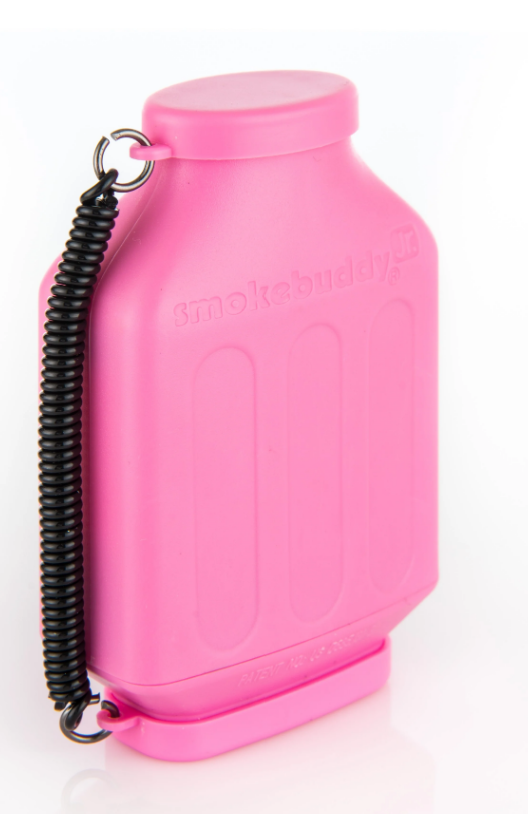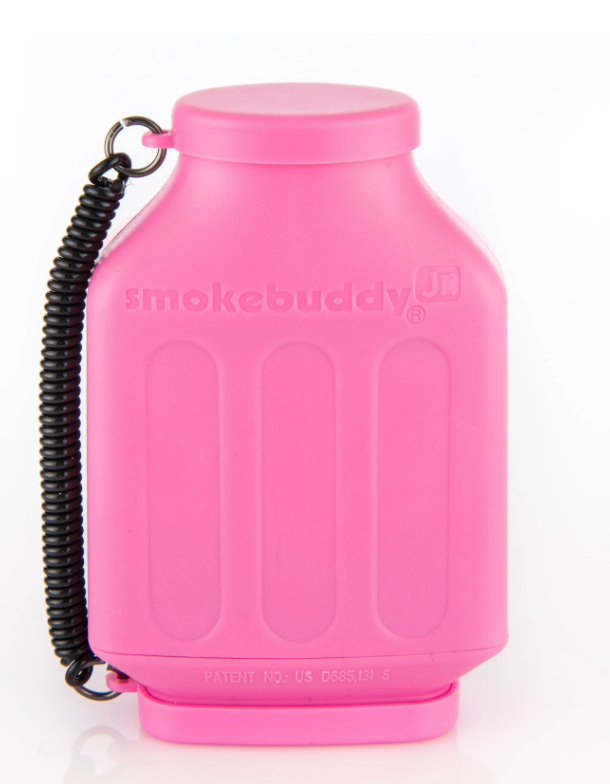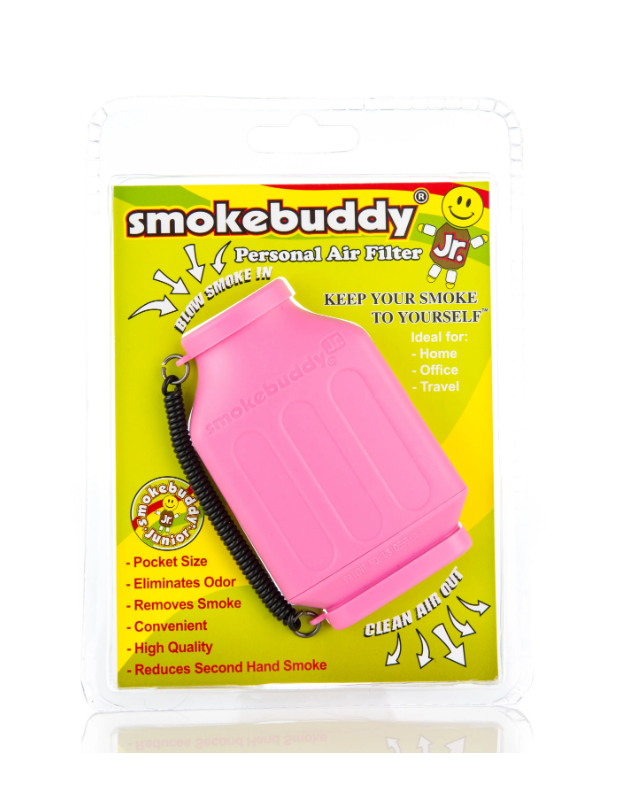Finding the best smoke air filter changes everything about a session. Clean air, light vibes, and no heavy smell sticking around make smoking feel smoother and more relaxed. The right filter sets the mood for long hangouts without worrying about thick clouds or stale air afterward.
Picking one might seem simple, but the details matter when it comes to airflow, filtration layers, and overall comfort during real sessions.
A solid filter keeps the environment fresh without killing the vibe. The air feels lighter, the space stays comfortable, and the people around enjoy the session without dealing with leftover smells. All of these small improvements add up, and once a good filter becomes part of the routine, sessions feel more enjoyable from start to finish.
Finding the best smoke air filter is about matching performance with lifestyle so every hit flows into a clean exhale that fits the moment.
Before we dive deeper, meet Smokebuddy, the brand behind reliable personal air filters that keep things fresh and discreet. Use code SLY25 to score 25% off your next order.
Understanding What Sets the Best Smoke Air Filter Apart

Choosing the best smoke air filter starts with understanding what makes a filter actually good. It comes down to consistency, airflow, and how well it traps odor before it spreads. Some filters look similar but work very differently once used in a real session. The right one keeps every exhale clean without forcing effort or making breathing feel restricted.
How Filtration Quality Shapes the Experience
Filtration is the heart of any smoke filter, especially if it claims to be the best smoke air filter. Inside the device, layers of carbon and other materials absorb smoke particles that create odor and heaviness in the air. A high quality personal air filter traps the particles right away so nothing lingers. A session feels noticeably cleaner because the air stays clear instead of thickening after every hit.
Better filtration also means less residue on surfaces. Smoke particles normally settle into fabrics, walls, and hair but a strong filter stops that from happening.
Keeping the environment clean helps long sessions stay comfortable while avoiding that stale smell that sticks around long after a session is over. A filter with good engineering makes a difference right away and keeps the air easy to breathe.
The Importance of Smooth Airflow
Airflow determines how natural a filter feels. The best smoke air filter should allow smooth exhales without clogging or feeling like a workout. Filters with poor airflow interrupt the rhythm of smoking, making each exhale feel forced or too tight. Good airflow ensures everything feels balanced and effortless during group or solo sessions.
The design of airflow pathways inside the filter creates this balance. When engineered well, the air travels through the materials evenly and comes out clean with little resistance. This makes smoking feel the same as usual but without the smoke cloud that normally follows. Comfort during every exhale comes from filters that keep airflow steady throughout multiple uses.
The Role of Size, Portability, and Build
The best smoke air filter fits naturally into different settings. Size and portability matter because smokers move around often, bringing their gear to house sessions, parks, or quick hangouts. A heavy or bulky filter becomes a hassle fast while a compact design fits easily into pockets or bags.
Understanding Portability Needs
Choosing the right size of the best smoke air filter depends on lifestyle. A smaller portable smoke filter works well for spontaneous or outdoor sessions where mobility matters more. Smaller models usually focus on convenience, but modern designs combine portability with strong filtration, keeping the air fresh wherever the session happens.
In contrast, a slightly larger filter works best for people who smoke indoors regularly.
These models often have more carbon layers and better airflow support, which helps during longer sessions. Picking the right type makes daily use easier because the filter fits the rhythm of every smoking style.
Durability and Material Choice
A sturdy build makes a filter dependable. Filters made from solid plastic or silicone materials survive drops, bags, and long-term handling without breaking. Better materials also protect the internal filtration layers so they stay effective longer. Smokers who value consistent performance look for filters that feel solid without being too heavy.
A personal air filter built with strong materials lasts through repeated sessions without losing shape or airflow quality. Durability matters when the filter becomes an everyday item rather than a novelty piece. A dependable build ensures the filter remains useful after months of use rather than wearing out quickly.
The Best Smoke Air Filter Depends on Filtration Style
The best smoke air filters use different systems to clean the air. Some rely primarily on activated carbon, while others use multi-layer filtration that handles particles of various sizes. Understanding these systems helps smokers pick the filter that fits their needs.
Activated Carbon Filtration
Activated carbon is the most common filtration method. It absorbs odor molecules and traps smoke so the air leaving the filter is clean. Many smokers appreciate carbon filtration because it leaves no chemical scent or strange artificial smell behind. It keeps the air neutral and fresh.
Carbon works through microscopic pores that absorb odor efficiently. This material creates a noticeable difference after just a few exhales. The best smoke air filter models often use large or layered carbon surfaces that increase absorption power. More carbon equals longer-lasting odor control and a cleaner session.
Multi-Layer Filtration Systems
Some filters combine carbon with additional layers that catch larger particles first. These multi-layer designs add extra clarity to the air because each stage targets different types of smoke particles. These filters usually perform better during heavy or extended sessions where smoke volume builds up faster.
Multi-layer systems also help maintain airflow because the layers distribute filtration work evenly. Instead of clogging quickly, the filter maintains a smooth draw. Smokers who prefer consistent airflow during long sessions frequently choose filters with this kind of structure.
How to Match the Best Smoke Air Filter to the Environment
The environment where smoking happens affects filter performance. Different spaces need different strengths depending on size, ventilation, and how often sessions take place.
Indoor Sessions and Odor Management
Indoor smokers often need stronger filtration because closed spaces trap odor more easily. A filter with dense carbon layers or multi-layer systems captures more odor molecules, keeping the room fresh. This makes a noticeable difference for apartments, bedrooms, studios, or shared spaces.
Odor management becomes more important when smoking with people who prefer fresh surroundings. Using a reliable smoke filter ensures sessions end without heavy smells sticking around. It keeps the room breathable and avoids that stale scent that settles on furniture or fabrics.
Outdoor Sessions and Convenience
Outdoor sessions do not require as strong filtration since natural airflow already helps disperse odor. Smokers in parks, rooftops, or open backyards typically benefit more from light and portable filters. A small personal filter for smoke makes the session cleaner without needing heavy-duty power.
Portability matters more outdoors because smokers move around more often. A compact filter that fits easily into a pocket or bag becomes the go-to choice when mobility is part of the experience.
Performance Over Time and Knowing When to Replace
Every filter eventually fills up with smoke particles and odor molecules. Knowing when to replace a filter helps maintain freshness. Long-term performance is a key factor when choosing the best smoke air filter.
Signs a Filter Needs Replacement
As a filter reaches its limit, airflow becomes tighter and odor control weakens. These changes happen gradually but become noticeable after many sessions. A filter that once felt smooth may begin to feel clogged or harder to use. Odor may also escape more easily despite using the same technique.
Replacing filters at the right time ensures that each session stays clean. Old filters lose their ability to absorb smoke properly, making the air heavier and less pleasant. Monitoring these signs helps maintain a consistent experience.
Keeping the Filter Clean Between Sessions
Filters perform better when the exterior stays clean. Residue buildup around the mouthpiece or vent can restrict airflow even when the internal filter is still effective. Wiping the outside with a dry cloth keeps the surface clear of debris and prevents clogging.
Simple cleaning routines help the filter last longer. The best smoke air filter models maintain steady performance when treated with proper care. Consistent upkeep makes a noticeable difference in airflow and overall session quality.
Tips for Getting the Most Out of the Best Smoke Air Filter
Choosing the right filter is only part of the process. Techniques and habits improve performance and make sessions cleaner and smoother.
Using Steady, Controlled Exhales
Filters work best when smoke moves through them steadily. Strong or forceful exhales push smoke too quickly and reduce absorption effectiveness. Controlled exhales give the filter enough time to trap particles before releasing clean air.
Smooth airflow ensures the session stays natural. Smokers who practice this method notice better filtration and consistent performance from their filters.
Pairing Ventilation with Filtration for Indoors
Even the best smoke air filter performs better with a bit of airflow nearby. A cracked window or small fan helps circulate clean air and prevents smoke from building up in one spot. The filter handles the odor, while ventilation helps keep the room light.
This combination makes indoor sessions feel fresher and cleaner. It keeps the environment comfortable for everyone present without relying solely on the filter.
Storing the Filter Properly
Proper storage keeps the filter in good condition. A protective pouch or case shields it from dust, moisture, and accidental drops. Filters that stay dry and protected last longer and maintain effective airflow.
Since smokers carry their gear often, storage becomes an important part of maintenance. Well-kept filters stay ready for any session at any moment.
The Feel of Using the Best Smoke Air Filter

Smokers who adopt filters into their routine notice an immediate improvement in session quality. Clean air keeps the environment light and enjoyable. The filter removes the worry about lingering smells or thick air clouding the experience.
The best smoke air filter becomes part of the setup naturally. It fits between the lighter and the piece, always ready to keep the vibe smooth. Sessions feel easier when the air stays fresh without extra effort. Once integrated, smoking without a filter feels incomplete.
FAQs
How does the best smoke air filter improve sessions?
A strong filter traps odor and smoke particles before they spread, keeping the air fresh. Better airflow, comfortable resistance, and effective carbon layers create smoother, cleaner sessions with no heavy smell lingering afterward.
How long does a smoke air filter usually last?
Most filters last for several months depending on usage frequency. Constant airflow and proper storage keep internal materials working longer. Once airflow tightens or odor escapes more easily, it is time to replace the filter.
Can a smoke air filter remove all odor?
Filtration removes almost all odor by absorbing particles through carbon layers. While no filter removes every molecule, a reliable design leaves the air noticeably fresh and neutral without strong lingering smells.
Is a smoke air filter useful indoors?
Yes. Indoor smokers benefit most from strong filtration systems because enclosed spaces trap odor quickly. A good filter prevents residue buildup on furniture and keeps small rooms breathable.
What features matter most when choosing the best smoke air filter?
Airflow balance, carbon quality, durability, and portability matter most. A filter should feel natural to use, clean the air effectively, and last through repeated sessions without losing power.
